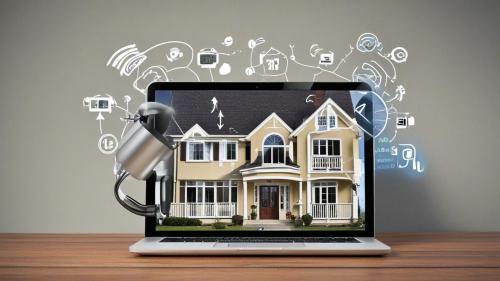The sunlight that streams through your windows on a bright summer morning isn’t just for illuminating your living room—it can also power your entire home. In an era where sustainability is on everyone’s mind, solar energy is emerging as a beacon of hope for a greener future. But how exactly is solar energy revolutionizing the way we think about home efficiency?
Most people are familiar with the basic concept: solar panels, or photovoltaic cells, absorb sunlight and convert it into electricity. But what many might not realize is how much these panels can affect overall home efficiency. From powering up your utilities to significantly reducing your electricity bill, the impact can be profound.
Let’s begin with the obvious: energy savings. When you install solar panels, you harness a natural resource that is abundant and free—sunlight. This can significantly cut down your reliance on traditional electricity sources, which are often expensive and harmful to the environment. Solar panels can generate electricity throughout the day, storing excess energy in batteries for use during the night or on cloudy days. Over time, this can lead to substantial savings, potentially even eliminating your electricity bill altogether.
But there’s more to the story. Solar panels can also increase your home’s overall resilience. In areas prone to power outages, having a solar energy system with battery storage ensures you have a backup source of power. This kind of energy independence is invaluable, especially during extreme weather events or emergencies.
Interestingly, the benefits extend beyond mere energy savings. Homes equipped with solar panels tend to be more attractive to potential buyers. According to real estate experts, homes with solar energy systems typically sell faster and at higher prices compared to those without. This makes solar panels not just a functional upgrade but also a smart investment in increasing your property’s value.
There’s also a notable environmental impact. Installing solar panels reduces your carbon footprint by decreasing the amount of fossil fuels used to generate electricity. In turn, this helps reduce greenhouse gas emissions, contributing to cleaner air and a healthier planet. Every kilowatt-hour of solar energy used is one less kilowatt-hour produced by traditional power plants, which are notorious for their pollution.
If you’re concerned about maintenance, you’ll be pleased to know that solar panels require minimal upkeep. Most systems come with warranties that last 20-25 years, during which little to no maintenance is typically needed. Occasional cleaning and periodic inspections are usually sufficient to keep the system running efficiently.
Now, let’s talk about some of the innovative technologies in the solar energy sector that are pushing the envelope. Smart solar panels are one such advancement. These panels are equipped with microinverters and monitoring technology that optimize energy production by adjusting to changing conditions. For example, if one panel is shaded, the others will compensate by generating more electricity. This maximizes efficiency and ensures consistent energy production.
Another exciting innovation is in solar roofing. Companies like Tesla have pioneered solar roof tiles, which function like regular shingles while generating electricity. These tiles blend seamlessly into your roof, offering a more aesthetically pleasing alternative to traditional solar panels. This approach democratizes solar energy, making it accessible and attractive to a wider audience.
Solar energy is also creating waves in the appliance sector. Solar-powered water heaters, for example, use solar panels to heat water, reducing the need for conventional heaters that consume a lot of electricity. Similarly, solar air conditioning systems are emerging as a sustainable alternative to traditional cooling methods. These innovations further enhance the overall efficiency of your home, making it more self-sufficient and environmentally friendly.
As amazing as all these benefits are, there are still some challenges to be addressed. The initial cost of installing solar energy systems can be prohibitive for many homeowners. However, various incentives, tax credits, and financing options are available to make solar more accessible. Additionally, advances in technology are gradually bringing down costs, making solar energy a more viable option for everyone.
Moreover, while solar panels are effective in sunny climates, their efficiency can drop in areas with less sunlight. To mitigate this, some systems are designed to work in tandem with other renewable energy sources, such as wind turbines, to ensure a steady supply of electricity.
In summary, solar energy is not just a trend; it’s a transformative force that’s changing the way we think about home efficiency. From substantial energy savings to increased property values, from resilience against power outages to a reduced carbon footprint, the advantages are plentiful. And with ongoing technological advancements, the future of solar energy looks brighter than ever. Whether you’re an eco-conscious homeowner or someone looking to cut down on electricity bills, investing in solar energy can benefit you in more ways than one.
So, the next time you feel the warm sunlight streaming through your windows, remember—it’s not just light; it’s potential power. Harness it, and watch your home transform into a beacon of efficiency and sustainability.
How solar energy is revolutionizing home efficiency




